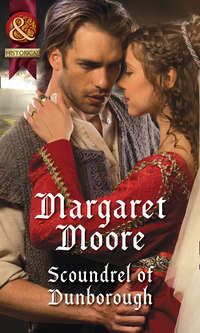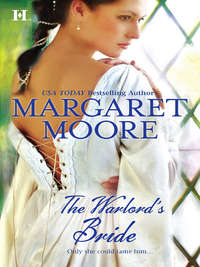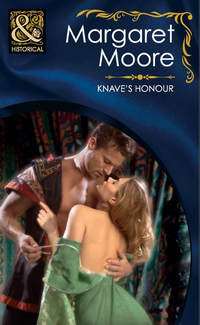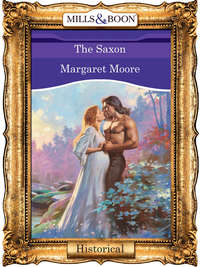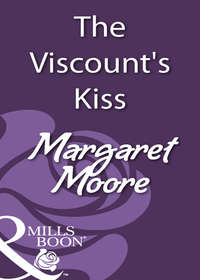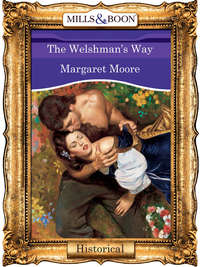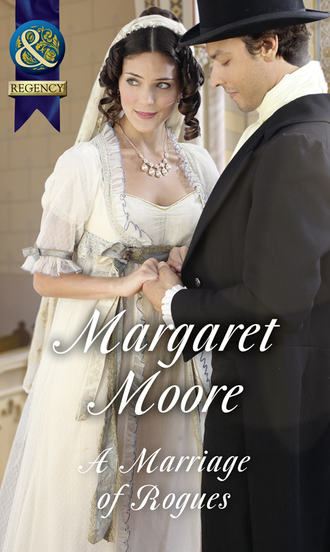
Полная версия
A Marriage Of Rogues

He made a dangerous wager...and won himself a wife
Gambling hells are Sir Develin Dundrake’s forte. Hunting risk, craving victory, he’s surprised by nothing. Until the woman whose dowry Develin has claimed in a card game proposes the only solution that will rescue her from ruin: a wedding.
Wicked Develin isn’t made for matrimony, but all Lady Theodora Markham demands is a convenient arrangement. He must avoid falling for his wife’s sensual charms—there are secrets hidden behind her beguiling gaze—yet neither can resist surrendering to the passion their marriage bed promises!
“Why isn’t your father here?”
“He’s sailed for Canada. He left a letter explaining why he’d taken the remainder of our funds and sailed for Halifax.”
“Good God, he left you with nothing?” Dev exclaimed, appalled.
Lady Theodora’s resolute expression returned and she straightened her slender shoulders.
“He left me my name and my pride, Sir Develin, and the hope of his eventual return. Be that as it may, I didn’t come here to discuss my father’s recent actions. I have a business proposition.”
A business proposition? That was as unexpected as her arrival.
“A goodly portion of the sum you won from my father was intended to be my dowry,” she went on briskly, giving him no chance to interrupt with either comments or a question. “I propose that since, you’ve got my dowry, you now take the bride.”
Dev had had the wind knocked out of him once before. He felt exactly the same way now. “What did you say?”
Author Note
I’m often asked where I get my ideas. In the case of A Marriage of Rogues, another question might be, how long have you had this idea?
The answer is years. Literally. Years.
In fact it’s been so long I don’t remember when I first got the notion of a heroine confronting a hero and saying—basically—‘You won my dowry…now you get the bride.’
Why did it take so long for this idea to grow into a book? I did write one version—an unsuccessful novella. I put it away and wrote other stories. However, this idea just would not go away, and I was delighted to get the chance to try again—this time with a full book in mind.
Then ‘Life’ happened—in the form of not one but two major medical crises in the family. Two starts went out the window, and I thought the story was doomed never to see the light of day. However, thanks to very understanding editors, I was given time to weather the crises and begin again. In the end I think the story is all the better for the time and effort required to bring it to fruition.
I hope you enjoy Dev and Thea’s romance. They’ve waited a long time to have their happy ending!
A Marriage of Rogues
Margaret Moore

www.millsandboon.co.uk
Award-winning author MARGARET MOORE has written over fifty romance novels and novellas for Mills & Boon, Avon Books and HarperCollins Children’s Books. Her stories have been set in the Dark Ages and medieval Britain, Restoration, Regency and Victorian England and pre–Civil War Massachusetts. Margaret lives in Ontario, Canada, with her husband and two cats. She can be found online at margaretmoore.com, margaretmoore.blogspot.com and @MargMooreAuthor on Twitter.
Books by Margaret Moore
Mills & Boon Historical Romance
The Knights’ Prizes
Castle of the Wolf
Bride for a Knight
Scoundrel of Dunborough
Stand-Alone Novels
The Overlord’s Bride
Bride of Lochbarr
The Duke’s Desire
The Notorious Knight
Knave’s Honour
Highland Rogue, London Miss
Highland Heiress
In the King’s Service
A Marriage of Rogues
Mills & Boon Historical Undone! eBook
The Welsh Lord’s Mistress
Visit the Author Profile page
at millsandboon.co.uk for more titles.
Dedicated to the newest members of our family. They’re already enriching our lives in so many ways.
Contents
Cover
Back Cover Text
Introduction
Author Note
Title Page
About the Author
Dedication
Chapter One
Chapter Two
Chapter Three
Chapter Four
Chapter Five
Chapter Six
Chapter Seven
Chapter Eight
Chapter Nine
Chapter Ten
Chapter Eleven
Chapter Twelve
Chapter Thirteen
Chapter Fourteen
Chapter Fifteen
Chapter Sixteen
Chapter Seventeen
Chapter Eighteen
Extract
Copyright
Chapter One
Cumbria, Northern England, 1814
Muttering an oath, Sir Develin Dundrake rose abruptly from the desk in the study of his country house. Crossing the oak-paneled room to the French doors leading to the terrace, he watched in amazement as a lone female marched along the pebble path toward Dundrake Hall. Judging by her ugly ensemble and determined air, the woman had to be some local busybody bent on asking for a charitable contribution. Why else would such a creature venture forth on this cool, misty autumn morning? And did she not know better than to approach the manor house from the garden?
Whoever she was and whatever she wanted, he was in no mood to be harassed by an overbearing female, however noble her cause. He already gave a considerable sum to several charities of his own choosing and he hadn’t had a decent night’s sleep in days.
He looked out again to see where she was—and nearly jumped out of his skin. She stood just outside the French doors looking into the study like Banquo’s ghost.
A surprisingly young, not terribly homely ghost, in spite of that ghastly pelisse the color of dung and droopy straw bonnet.
He strode to the doors and wrenched them open. “Who are you and what do you want?” he demanded.
With a little gasp of surprise, the young woman took a step back, giving him the upper hand, or so he thought until an expression of determined resolve came to her not-quite-homely features. Her arched brown eyebrows lowered over storm-gray eyes, the nostrils of her slender nose flared and her full lips thinned before she replied in an unexpectedly husky voice, “Good morning, Sir Develin. You are Sir Develin Dundrake, I assume.”
“Visitors should call at the front entrance,” he replied without any attempt at courtesy or directly answering her query.
“Have I the honor of addressing Sir Develin Dundrake?”
Was that sarcasm in her voice? “Yes, I’m Sir Develin,” he said shortly, and with slightly better grace. If she was here on a charitable mission, he was wrong to be rude, even if she didn’t observe the rules of etiquette.
“I beg your pardon for not calling at the main entrance,” the young woman answered, her tone conveying neither remorse nor regret. “I intended to walk around to the front until I saw you. Given that my business with you is of a very personal nature, I decided it wouldn’t be amiss to speak to you directly and in private.”
No doubt she’d decided. She seemed nothing if not decided, and unfortunately for her, that was not a point in her favor. His father had been decisive, too. As for any business of a personal nature, he’d never seen her before in his life, of that he was certain. He would remember those large eyes and full lips, if nothing else.
Nevertheless, there was something about her that seemed familiar...
“May I come inside?” she asked. “Or if you would rather remain where you are, I have no objection. However, I must and shall speak with you today, Sir Develin, whether in your garden or your house.”
No matter how resolute this woman was, he could easily have her removed from the premises and charged with trespassing, too.
Yet he did not. What he did next surprised him then and ever afterward. He opened the door wider and stepped aside to let her enter.
The young woman walked into his study and stopped in front of the marble hearth. A portrait of his father hung over it and she regarded it as if fascinated. Sir Randolf Dundrake had been painted seated at the desk that still dominated the room, one hand curled in a fist, the other on a book, even though he hadn’t read a book since he’d left school some thirty years before the portrait was painted. The only background was a dark curtain, making his pale, hard face stand out like a mask. His black hair was thick, like his son’s, and brushed back from a high forehead. He had the same brown eyes and strong jaw as his son, too, but thank God Dev hadn’t inherited his father’s thin lips and wide nose.
The young woman turned toward him. “That isn’t you.”
“No, it is not,” he confirmed, wondering if he should ring for the butler. Perhaps it would be wise to have another person in the room.
He started toward the bell pull.
“I am Lady Theodora Markham.”
God help me. Trying to calm his suddenly racing heart, Dev took a deep breath and slowly swiveled on his heel to face her. “I beg your pardon?” he said.
He’d heard her as clearly as if she’d been standing right beside him, but he needed time to think.
“I am Sir John Markham’s daughter. I’m sure you recall the name. My father lost a great deal of money gambling with you in London a fortnight ago.”
Recall the name? He couldn’t forget it or Sir John Markham. More than once Dev had suggested ending their game, but Sir John had insisted they continue playing even after he began losing, going so far as to call Dev a poor loser and a coward for wanting to quit. They had played on until the man had lost all the money he’d had with him and written Dev several promissory notes. The game had finally ended when Dev realized the man would never willingly quit. Ignoring Sir John’s increasing scornful remarks, he’d finally walked away from the table.
Since that night, he’d been half expecting Sir John to appear on his doorstep to plead for time to pay his debt. That would have been bad enough, but to send a female relative to plead in his stead, even one as apparently self-possessed as this, was the act of a blackguard.
However, the question now was, how was he to deal with this forthright relative?
Before he could come to any conclusion, she spoke again, her tone just as forceful. “In fact, Sir Develin, he lost all his remaining funds except for a very small sum that was in my keeping at the time.”
Although that was unwelcome and distressing news, Dev fought to keep any expression of guilt from his features. After all, it wasn’t his fault the man had kept gambling, or so he’d told himself a hundred times. “It was his choice to play.”
“I’m not sure ‘choice’ is precisely the right term to use,” Lady Theodora countered. “I realize you are likely unaware that he had sold the family estate some time ago, as well as all the plate and horses and carriages, to pay his gambling debts. All we had left were some clothes and the money he played with the night he lost to you. That was the last of his fortune, except, as I said, for a small sum in my care.”
“Have you come here to ask me to release him from his debts?” Dev asked, deciding that would be the easiest way to deal with her, and his own remorse. “Or perhaps to ask for another loan?”
Her expression as stern as Sir Randolf’s, she shook her head. “I am not a beggar, Sir Develin.”
His eyebrows lowered with confusion. “Then why have you come? If it’s to chastise and berate me, you may spare yourself the trouble. I gave your father every opportunity to leave the game.”
Finally she blushed, yet she still kept her steadfast gaze on his face. “However it came about, you were the beneficiary of my father’s final wagers.”
A dreadful thought came to him. Men had killed themselves over smaller debts. “Why isn’t your father here?”
“He’s sailed for Canada.”
Relief washed over him, and yet—“Without you?”
Her blush deepened. “He was too ashamed to tell me of his plans. He left a letter explaining why he’d taken the remainder of our funds and sailed for Halifax.”
“Good God, he left you with nothing?” Dev exclaimed, appalled.
Lady Theodora’s resolute expression returned and she straightened her slender shoulders. “He left me my name and my pride, Sir Develin, and the hope of his eventual return. Be that as it may, I didn’t come here to discuss my father’s recent actions. I have a business proposition.”
A business proposition? That was as unexpected as her arrival.
“A goodly portion of the sum you won from my father was intended to be my dowry,” she went on briskly, giving him no chance to interrupt with either comments or a question. “I propose that since you’ve got my dowry, you now take the bride.”
Dev had gotten the wind knocked out of him once before. He felt exactly the same way now. “What did you say?”
“I said, since you’ve got the dowry, you should also take the bride.”
He still couldn’t believe he understood her correctly. “What exactly do you mean?”
She continued to regard him steadily with those grave gray eyes and spoke with that same stern resolve. “I mean, Sir Develin, that you should marry me.”
“Marry?”
“Yes,” she confirmed. “I need a home and you need a wife. You are nearly thirty, Sir Develin, as well as rich, titled and handsome. Since you haven’t yet taken a bride, I gather you enjoy the freedom to do what you will, when you will, with whomever you want.
“However, because you are rich, titled and handsome, you are also the target of every marriage-minded young lady and her mama in England. If you marry me, in return for the comfort and security being your wife will afford me, you will have a wife who will run your household and maintain a position in society. My family may have become poor, but it was not always so. I’ve been properly educated and know what’s expected of a baronet’s wife. I will also give you the freedom to do as you will within the bounds of the law. I will not question where you go or what you do or with whom you do it. In short, I will have a comfortable life free from worry and you may have the carefree life of a bachelor without guilt or harassment from your wife or other marriage-minded females.”
Dev could only stare in amazement. This brazen, yet undoubtedly serious, dowdily dressed young woman standing before him had just made the most outrageous proposition he had ever heard—and he had heard a few outrageous ones in his time. To be sure, there was a certain logic to her suggestion...but her proposal was still outrageous and out of the question. “You must be joking,” he said at last.
“I am quite in earnest, I assure you,” she replied with that same calm determination. “Being a woman and without funds, I have limited opportunities. I could become a governess or teacher or a lady’s companion, but I thought first I would see if you would accept a measure of responsibility for what you’ve done in a way that will also relieve you of some difficulties.”
As she spoke, he managed to regain his composure. “I didn’t bring your father to that gaming hell, or force him to play cards, and I am not the one who left you without resources, so my conscience is quite clean in that regard,” he replied, even if it wasn’t...quite.
But although he had some regret for what had happened that night, he had no intention of binding himself for life to this bizarre woman.
Or so he told himself until he remembered the last ball he’d attended and the women who had watched him like a cat stalking a mouse. His objections diminished further when he recalled the trap the daughter of the Duke of Scane might have set.
Lady Theodora was right about certain elements of his current existence. And what other lady of his acquaintance would let him do as he liked and without complaint once he was wed?
None came to mind.
Regardless of whatever appeal her proposition held, there was something else she’d apparently failed to consider. “Suppose I were to accept this outrageous proposal, what about children, Lady Theodora? Have you considered that in your planning? I shall want an heir and a spare at least.”
If he thought he’d found the chink in her armor, the way she raised her head and thrust out her chin proved him wrong. “I am not an ignorant schoolgirl, Sir Develin. I shall do what is required.”
“Required? Hardly an enticement,” he noted dryly.
She raised an eyebrow. “It’s my understanding you need very little enticement.”
He would not be embarrassed or ashamed of his natural appetites. “I enjoy the pleasures of the bedroom and make no apologies for that.”
“None are necessary,” she replied. “As I said, I shall do what is required of your wife and expect you to do what is required of a husband. What else you do will be your own affair.”
He strolled closer. “Provided I agree to this astonishing proposal.”
She nodded. “Yes, provided you agree.”
“I just might,” he murmured before he pulled her into his arms and kissed her full on the lips.
* * *
Surprised and stunned, Thea’s immediate instinct was to pull away and slap Sir Develin’s face—except that this was no harsh, demanding, punishing kiss. It was tentative, tender and tempting. And she had come here to ask this man to marry her.
Moreover, the man kissing her was Sir Develin Dundrake. He was the most handsome man she’d ever seen, with those dark eyes, fine nose and strong jaw. She also knew a kind heart resided in that manly form, in spite of what had happened with her father.
Leaning against his body, she parted her lips and let his tongue slid into her mouth, not even moving back when his hand slid up her side and beneath her pelisse to cup her breast. Instead she held him closer still, gliding her hands over his back, feeling the play of his muscles through his broadcloth jacket. This was what she’d dreamed of since she first saw him months ago.
Nevertheless, reality was far more overwhelming, just as he was even more good-looking up close. She’d only seen him from a distance before. Here, in his impressive house, wearing those fine, well-fitting trousers, shirt, jacket and expertly tied cravat, his thick, dark wavy hair slightly disheveled as if he’d recently awakened, he was the perfect example of the perfect man.
He broke the kiss and drew back, a strange expression on his remarkably handsome face.
What was it? Surprise? Confusion?
Then he smiled, a roguish grin that was both merry and seductive. “I begin to appreciate the merits of your proposal, my lady.”
She was beginning to appreciate that, in spite of her vivid imagination, she had not been prepared for that kiss, or the desire it created.
“If I were to agree,” he went on, “when and where shall we marry? I assume you’ve thought that out, as well.”
It took her a moment to realize he both looked and sounded as if he might be seriously considering her proposal—something she had scarcely dared to hope. Trying to regain her precious self-control, she said, “You should meet me at the village inn early tomorrow morning. From there, we can go to Gretna Green and be married at once.”
“I see. What explanation do you suggest I give for my sudden elopement with a woman I’ve never met before?”
She had an answer for that, too. “I was raised in Ireland before my father lost his money. I understand you’ve traveled there in the past, so you can say we met in Dublin. And my family is in DeBrett’s, should anyone care to look.”
Sir Develin immediately went to a shelf beside the portrait of the stern, cruel-looking man. He pulled out a book and leafed through it before running his finger down a particular page. “Ah yes, there you are, or at least your family.”
He closed the book and returned it to the shelf. “I confess myself surprised you’re willing to marry a man you’ve never met before.”
“Naturally I made inquiries before coming here,” she truthfully replied. “No matter how desperate my circumstances, I have no wish to tie myself to an inveterate gambler or a sot or a lecher. You gamble rarely, you don’t drink to excess and while you’ve had several liaisons with a variety of women, you aren’t a seducer of innocents. Nor are you a dandy.”
And when you stroll down the street, you move like a warrior prince, she thought, but didn’t say.
“You have made inquiries. But perhaps I have no wish to marry a woman I’ve only just met.”
“You had only just met my father the night you won all his money.”
“Marriage is hardly a game of chance.”
“Is it not?” she returned. “How well do you think most men of your rank know the women they wed—really know them? Don’t they more often marry based on family lineage and the limited acquaintance of shared social gatherings?”
He studied her for a long moment, then glanced at the portrait before looking back at her. “You seem to have thought of everything.”
She, too, had believed she had, until she was actually in Sir Develin’s presence and shared a kiss. Now her nerves were strained nearly to the breaking point. If this conversation lasted much longer, they might get the better of her, so she decided to get directly to the heart of the matter. “Are we to wed or not, Sir Develin?”
He smiled slowly, as if he had all the time in the world to answer. “Surely I may be allowed to think it over. After all, it isn’t every day I get a proposal of marriage. In fact, this is the first.”
His manner, both amused and condescending, roused her pride and her ire, too.
“This situation may be vastly amusing to you, Sir Develin,” she retorted, “but I assure you, it’s very serious to me. If you cannot give me your answer today, I shall consider that a refusal.”
“No need to be so hasty or so angry,” he said, his visage turning as grimly serious as that of the man in the portrait. “You must admit I have a right to take some time to contemplate your offer.”
She readied herself for his refusal and for what she would say when he did.
“I agree.”
Her lips parted and her eyes widened with astonishment. “You do?”
He nodded, and to her even greater amazement, a look of what could be amusement twinkled in his brown eyes. “I do,” he said with an affirming nod. “I shall meet you tomorrow morning at the Maiden’s Arms in the village of Dundrake as you suggest. Rather appropriate under the circumstances, don’t you think? Now I suppose you ought to stay to dinner.”
Torn between confusion, delight and relief, afraid he might change his mind if she stayed any longer, Thea rapidly shook her head. “No, thank you. I have to pack my things,” she replied, moving quickly to the French doors.
“Let me call a carriage for you. It’s a terrible day for walking.”
Her hand already on the latch, she half turned to answer. “No, thank you. I don’t mind. I enjoy walking. It’s not far and I’ll be halfway to the inn by the time the carriage is ready.”
Before he could say another word, Thea was out the door and walking across the terrace as fast as her dignity would allow until she reached the steps leading to the garden. Then her dignity gave way to excited relief and she broke into a most unladylike run.


